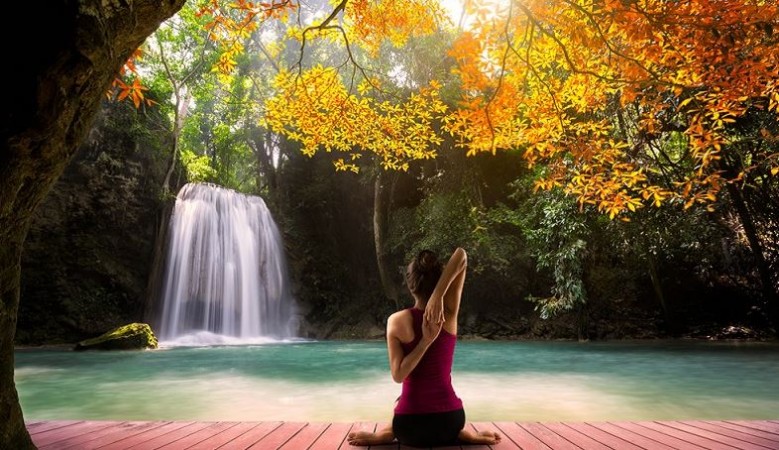
Nature has always been a source of solace, inspiration, and healing for humankind. In our modern, fast-paced lives, the concept of ecotherapy has gained significant attention as a way to reconnect with nature and harness its healing power. This article delves into the world of ecotherapy, exploring its benefits and various forms, and provides practical insights on how to incorporate it into our lives.
What is Ecotherapy?
Ecotherapy, also known as nature therapy or green therapy, is an approach to mental and physical well-being that involves engaging with nature as a therapeutic tool. It recognizes the intrinsic connection between human beings and the natural environment and aims to enhance health and wellness by promoting interactions with nature.
Historical Background
The concept of ecotherapy is not new. Throughout history, cultures around the world have recognized and utilized the healing power of nature. From ancient Greek philosophers advocating for the benefits of spending time outdoors to Indigenous communities incorporating nature-based rituals into their healing practices, the importance of nature in promoting well-being has been understood across generations.
The Connection between Nature and Well-being
Numerous studies have shown a strong correlation between spending time in nature and improved well-being. Nature has a calming effect on our minds and bodies, reducing stress, anxiety, and symptoms of depression. It helps restore our attention, increase creativity, and boost our mood. The beauty and serenity of natural environments have a profound impact on our emotional and psychological state.
Benefits of Ecotherapy
Ecotherapy offers a wide range of benefits for both physical and mental health. Let's explore some of them:
Physical Health Benefits
Mental Health Benefits
Different Forms of Ecotherapy
Ecotherapy encompasses various forms of engagement with nature. Here are three popular approaches:
Forest Bathing
Forest bathing, or Shinrin-Yoku, is a Japanese practice that involves immersing oneself in the atmosphere of a forest. It encourages slow, mindful walks in nature, allowing individuals to connect with the sights, sounds, and scents of the forest. Forest bathing has been scientifically proven to reduce stress, lower blood pressure, and improve overall well-being.
Horticultural Therapy
Horticultural therapy involves engaging in gardening or plant-related activities as a means of therapy. It provides individuals with a sense of purpose, accomplishment, and connection to the natural world. Horticultural therapy has been shown to enhance motor skills, improve attention and focus, and promote emotional well-being.
Wilderness Therapy
Wilderness therapy combines outdoor adventure activities with therapeutic interventions. It is often used in the treatment of mental health issues, substance abuse, and behavioral problems. Wilderness therapy programs aim to foster personal growth, self-reflection, and resilience through challenging outdoor experiences.
How to Practice Ecotherapy
Incorporating ecotherapy into our lives doesn't require us to be surrounded by vast forests or pristine landscapes. Here are some practical ways to engage with nature:
Finding Nature in Urban Areas
Even in urban environments, pockets of nature can be found. Seek out local parks, botanical gardens, or community gardens where you can spend time amidst greenery. Find solace in small outdoor spaces or incorporate indoor plants into your living or working environment.
Engaging in Outdoor Activities
Participate in outdoor activities that resonate with you. This could include hiking, cycling, birdwatching, or simply taking a leisurely stroll in a nearby park. The key is to engage all your senses and immerse yourself in the experience.
Case Studies and Success Stories
There are numerous inspiring stories of individuals who have found healing and transformation through ecotherapy. Here are a few examples:
Sarah, a breast cancer survivor, credits her recovery to regular walks in nature, which provided her with a sense of peace and renewal.
John, who struggled with chronic stress and anxiety, found relief through gardening. Tending to plants and witnessing their growth helped him regain a sense of control and tranquility.
Precautions and Safety Measures
While ecotherapy is generally safe and beneficial, it's important to exercise caution and consider safety measures when engaging with nature. Here are a few precautions to keep in mind:
Check weather conditions and be prepared for changes in the environment.
Dress appropriately and protect yourself from sunburn, insect bites, and other potential hazards.
If you have any pre-existing medical conditions, consult with your healthcare provider before engaging in strenuous outdoor activities.
Conclusion
Ecotherapy offers a profound and accessible way to improve our well-being by connecting with the healing power of nature. Whether through forest bathing, horticultural therapy, or other forms of engagement, spending time in nature can positively impact our physical and mental health. So, take a step outside, breathe in the fresh air, and let the wonders of nature work their magic.
MS Home Foods – Ease your daily routine with a compliment to healthy South Indian breakfast
Unlocking the Potential of Artificial Intelligence in Everyday Life
Why is vitamin H necessary for the body? Eat these foods to overcome their deficiency